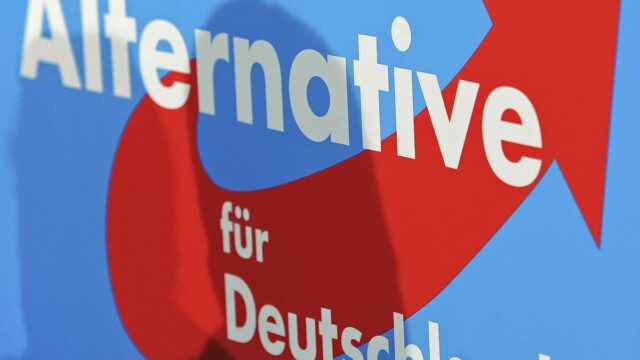Far-right dissidents from across the European Union could create a new far-right group in the EU Parliament. Ultranationalism, Euroscepticism and pro-Russian sympathies would become the common ground of the meeting.
Far-right parties are preparing to overcome their political fragmentation. The German AfD will need a new parliamentary family from the EU after his expulsion from the ultra-conservative Identity and Democracy Group.
Other parties could be tempted to join the new far-right group Alternativa, reports the Euronews Super Poll.
The European right is clearly divided by political incompatibilities and different interests. Steven Van Hecke, professor of EU Politics at KU Leuven, explains why it will be very unlikely that there will be a single far-right group in the next EU legislature:
“Several far-right parties are in the process of radicalization. I don’t think they will all unite after the elections. “We would prefer to see not one, but three instead of two political groups.” That is also the reason why Marine Le Pen recently made it clear that she wanted to have a clear cut, a clear distance from the AfD.
The ‘AfD’ has been expelled during the current EU electoral campaign by the call of Marine Le Pen, the leader of the ‘ID’ group, after the declarations of sympathies for the retired ‘waffen SS’ of its former head of list, Maximilian Krah.
The AfD has also been accused of course support for Russian influence actions and a case of Chinese espionage.
The ‘Euronews’ Super Poll projects that the seats to create an alt-right group will be a reality after the vote.
From a purely arithmetic point of view, with the need for at least 23 MEPs from at least seven different member states, the margin of error is practically non-existent thanks to the support of 15 potential ‘AfD’ seats in Germany.
“Calls and inquiries are already being made: The Bulgarian ‘Revival’ contacted the leaders of the ‘AfD’ after their expulsion from the ‘ID’,” reports the Euronews Polling Center.
Apart from the ‘AFD’, there are provisions regarding MEPs from Poland, Lithuania, Bulgaria, Hungary (‘Our Homeland’ party) and Slovakia.
The common point between these dissident parties could be their pro-Russian political approach.
If created, the new far-right group will have the opportunity to be in the political spotlight and media in the next five years, since the Ukrainian question will inevitably be one of the most relevant topics of the next EU legislature.
Another possible parliamentary group of the EU that could sympathize with Russia sits in the seats of the “alt left”” of the EU Parliament. This is the Left Sovereignists group, also the result of the German political commitment of the Sahra Wagenknecht Group (BSW).
Sahra Wagenknecht is a dissident from Die Linke,* the historic German parliamentary group of the Left. Her faction will leave that group and create an alternative one. Also in that case it is expected that left-wing sovereigntists from all over Europe have enough seats to meet.







